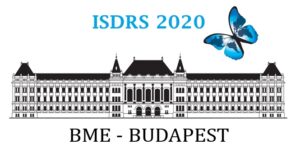Conference Theme
The Virtual Budapest conference aimed to identify the most important trends in today's societies happening either as a result or parallel to the environmental and social crises we face in both developing and developed countries. The conference explored the sustainability implications of these large scale changes, including, but not limited to shifts in demographics and the polarization evident in many societies; the impacts of rapid technological innovation including the digitisation of the economy; the shifting centres of economic power and the spread of new business models, as well as resulting changes in lifestyles.
The urgency of the need to understand how these changes interact with a need for a more sustainable society has been emphasized by the UN Environment's sixth Global Environment Outlook (GEO). The report published in Spring, 2019 concluded that recent, unsustainable production and consumption patterns and inequality, combined with increases in the use of resources lead to the deterioration of our Planet's health at unprecedented rates, which has serious consequences, in particular for poorer people and regions.
The report warns that ‘the world is not on track to achieve the environmental dimension of the Sustainable Development Goals or other internationally agreed environmental goals by 2030; nor is it on track to deliver long-term sustainability by 2050' (GEO 6 key messages).
On the one hand, incremental change (e.g. the gradual improvement of resource efficiency) has serious limitations such as the time required to achieve significant results and the several types of rebound effect resulting from an increase in population and individual consumption. On the other hand, our understanding of the sustainability implications of current systemic changes in our transforming societies is very limited.
Thus, urgency to take action combined with the large scale societal changes call for new solutions in every sphere of our societies. To this end, we invited contributions, which either explore the sustainability implications of systemic changes in our societies and/or provide solutions to these challenges. Discussions will be organised along the traditional tracks of the conference based on the topic groups of ISDRS and a special track with a more concrete focus on transforming societies. Additionally, keynote speakers from all around the world addressed challenges in line with the special topic of the conference.
ISDRS 2020 Core Themes and Tracks
The Budapest conference featured the traditional themes and tracks of previous ISDRS conferences with a special topic to serve as the main thread of discussion in both plenary and breakout sessions relating to Sustainable Development.
Ph.D Workshop
The International Sustainable Development Research Society (ISDRS) and the Department of Environmental Economics at the Budapest University of Technology and Economics (BME) welcomed early career researchers, including doctoral and master students, to present their work in a one-day PhD Workshop.
The aim of the workshop was to support early career researchers working on sustainable development related topics by providing them with an arena for discussion of their on-going research projects and socialising with peers and senior academics.
Please follow the ISDRS New Professionals Group on Facebook and get to know other early career researchers.
Where and when?
ISDRS2020 was as virtual online conference due to the Covid-19 crisis, and was hosted by
Budapest University of Technology and Economics, Budapest, Hungary.
Conference: 15th to 17th of July, 2020
Ph.D. workshop: 14th July
